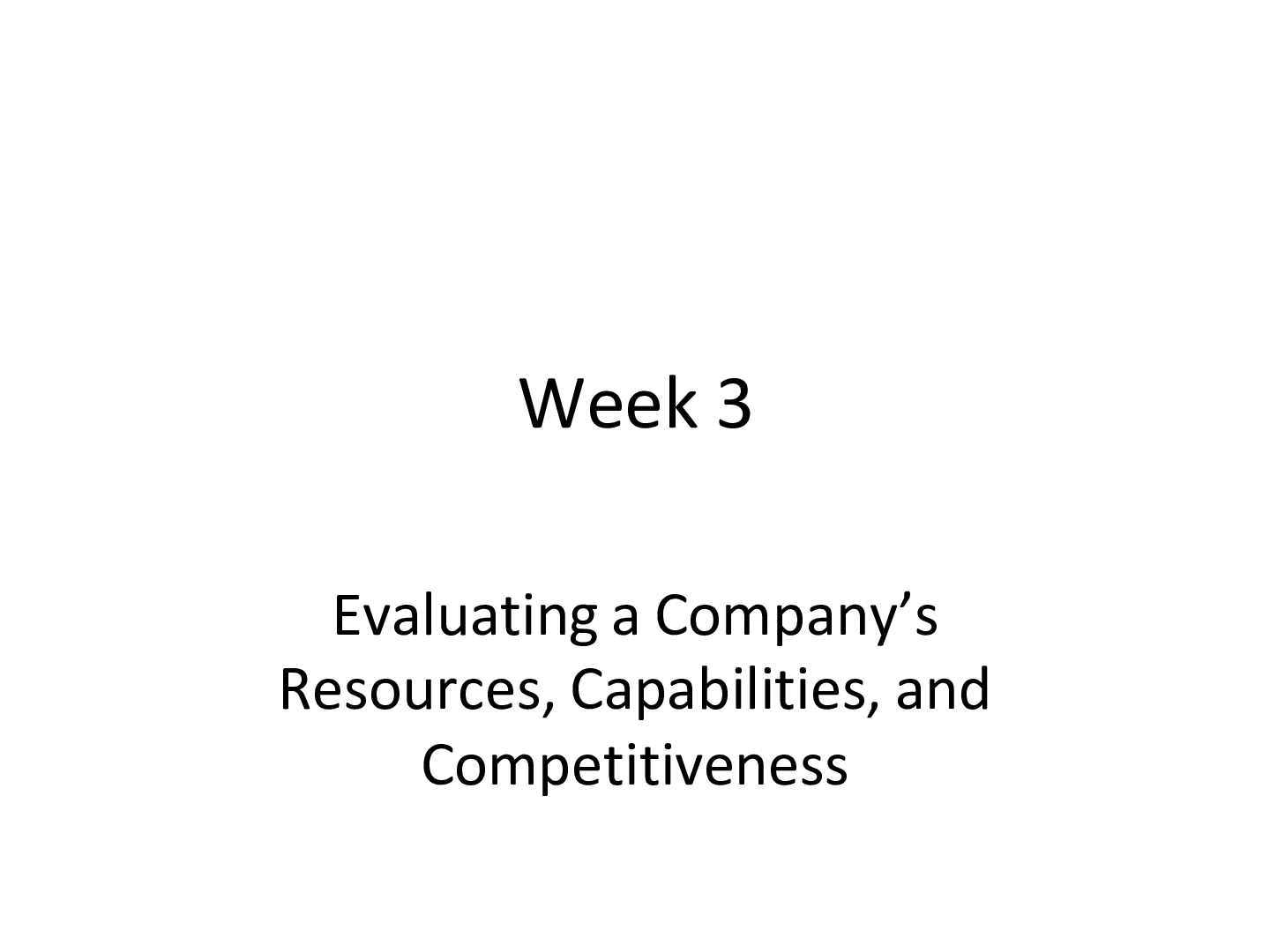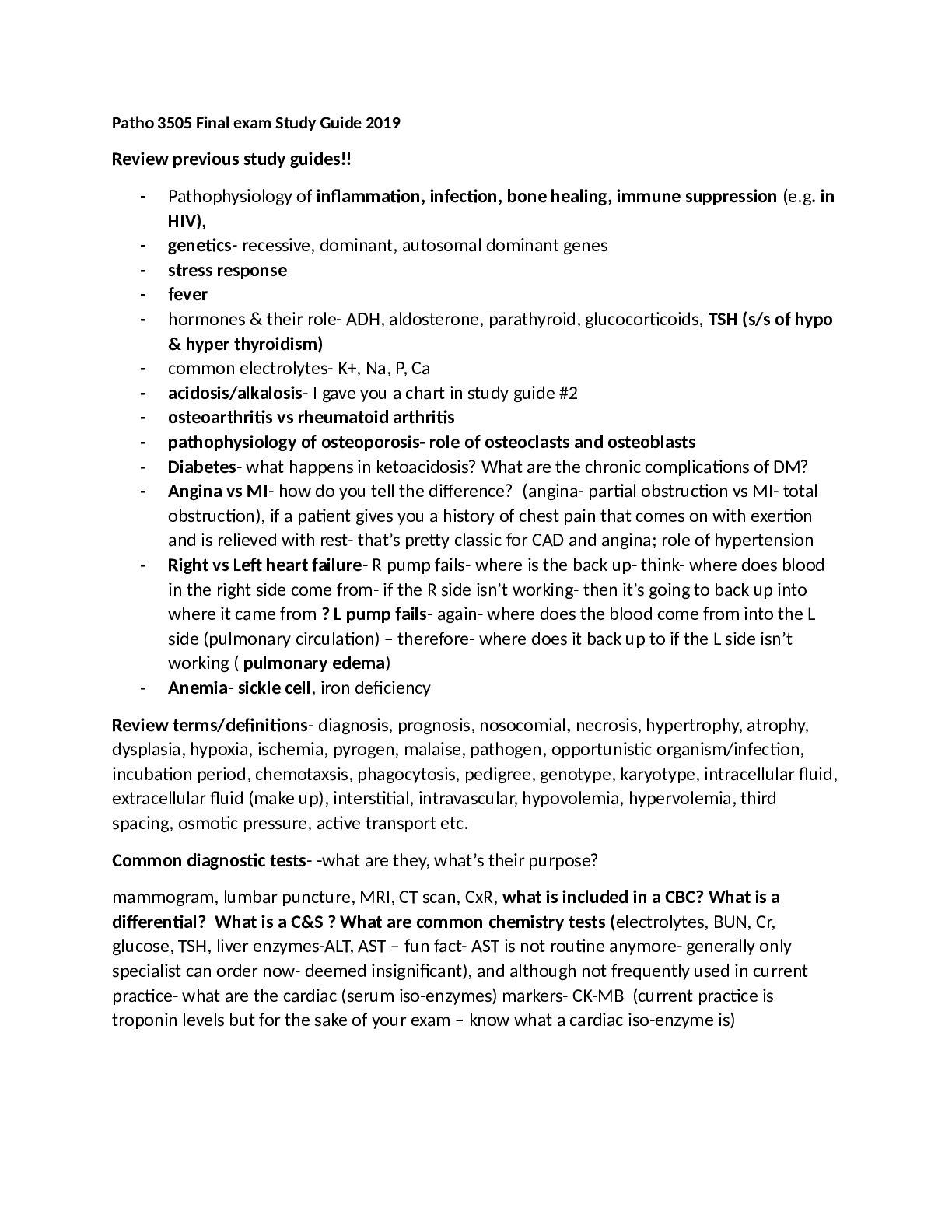Business > STUDY GUIDE > Evaluating a Company’s Resources, Capabilities, and Competitiveness (All)
Evaluating a Company’s Resources, Capabilities, and Competitiveness
Document Content and Description Below
Week 3 Evaluating a Company’s Resources, Capabilities, and Competitiveness Learning Objectives 1. How to evaluate how well a firm’s strategy is working. 2. How to assess the ... company’s strengths and weaknesses in light of market opportunities and external threats. 3. Why a company’s resources and capabilities are critical in gaining a competitive edge over rivals. 4. How value chain activities affect a company’s cost structure and customer value proposition. 5. How a comprehensive evaluation of a firm’s competitive situation can assist managers in making critical decisions about their next strategic moves. How Well Is the Company’s Present Strategy Working? • The three best indicators of how well a company’s strategy is working are: 1. Whether it is achieving its stated financial and strategic objectives 2. Whether its financial performance is above the industry average 3. Whether it is gaining customers and gaining market share Identifying the Components of a Single-Business Company’s Strategy Specific Indicators of Strategic Success • Sales and earnings growth trends • Stock price trends • Company’s overall financial strength • Customer retention rate • Rate of new customers acquired • Evidence of improvement in internal processes • defect rate, order fulfillment, delivery times, days of inventory, and employee productivity TABLE 4.1 Key Financial Ratios: How to Calculate Them and What They Mean Profitability Ratios How Calculated What It Shows Gross profit margin Sales revenues − Cost of goods sold Sales revenues Shows the percentage of revenues available to cover operating expenses and yield a profit. Operating profit margin (or return on sales) Sales revenues − Operating expenses Sales revenues or Operating income Sales revenues Shows the profitability of current operations without regard to interest charges and income taxes. Earnings before interest and taxes is known as EBIT in financial and business accounting. Net profit margin (or net return on sales) Profits after taxes Sales revenues Shows after-tax profits per dollar of sales. Total return on assets Profits after taxes + Interest Total assets A measure of the return on total investment in the enterprise. Interest is added to after-tax profits to form the numerator, since total assets are financed by creditors as well as by stockholders. TABLE 4.1 Key Financial Ratios: How to Calculate Them and What They Mean Profitability Ratios How Calculated What It Shows Net return on total assets (ROA) Profits after taxes Total assets A measure of the return earned by stockholders on the firm’s total assets. ..........................................................continued.......................................................................................... [Show More]
Last updated: 2 years ago
Preview 1 out of 63 pages

Buy this document to get the full access instantly
Instant Download Access after purchase
Buy NowInstant download
We Accept:

Reviews( 0 )
$14.00
Can't find what you want? Try our AI powered Search
Document information
Connected school, study & course
About the document
Uploaded On
May 10, 2021
Number of pages
63
Written in
Additional information
This document has been written for:
Uploaded
May 10, 2021
Downloads
0
Views
48



.png)










